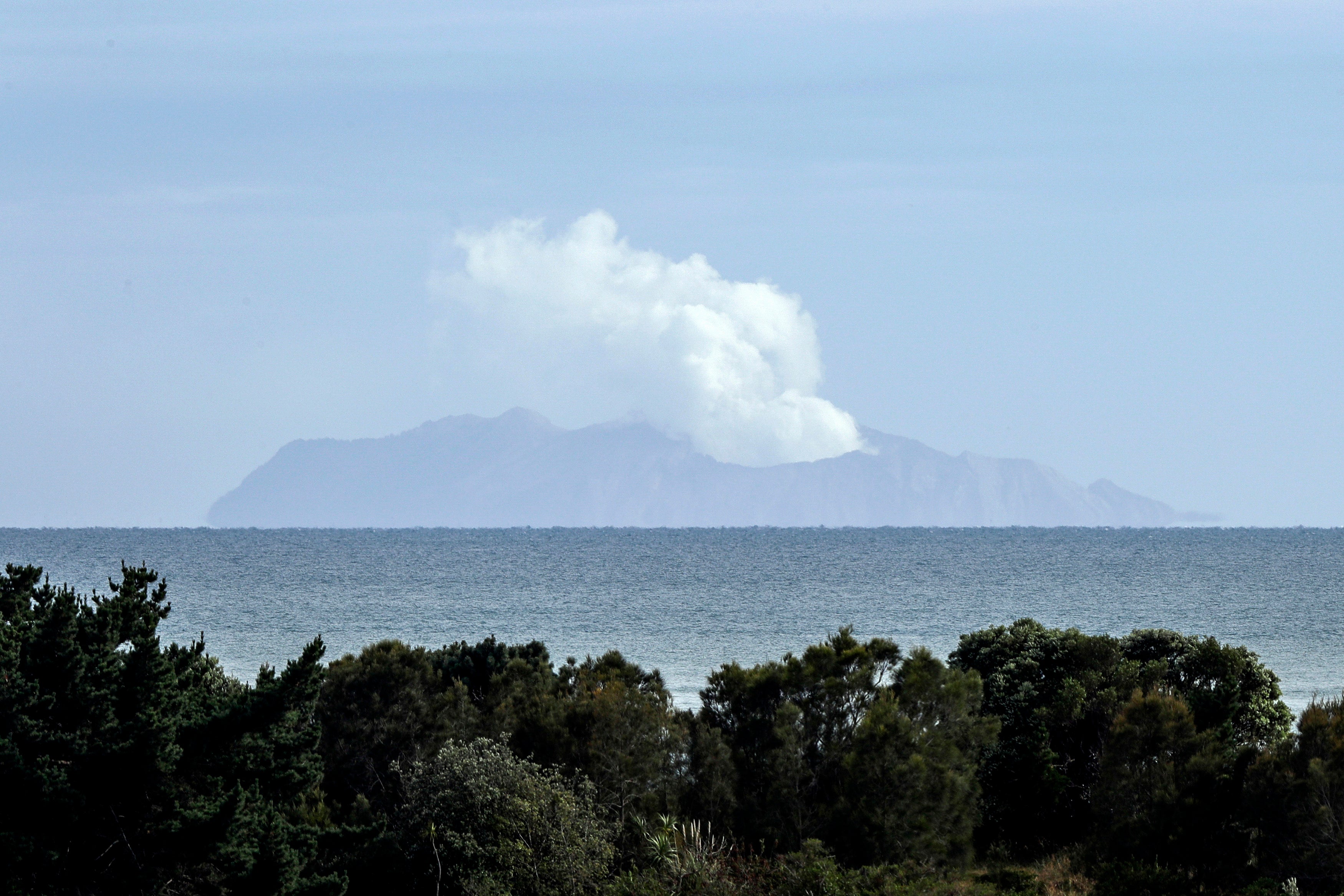New Zealand prosecutor alleges tourists were not warned before volcano eruption in 2019 killed 22
A New Zealand prosecutor says tourists received no health and safety warnings before they landed on the country’s most active volcano ahead of a 2019 eruption that killed 22 people

Tourists received no health and safety warnings before they landed on New Zealand’s most active volcano ahead of a 2019 eruption that killed 22 people, a prosecutor said Tuesday.
There were 47 people on White Island, the tip of an undersea volcano also known by its Indigenous Maori name Whakaari, when superheated steam erupted on Dec. 9. Most of the 25 people who survived were severely burned.
The island’s owners, brothers Andrew, James and Peter Buttle, their company Whakaari Management Ltd. and tour operators I.D. Tours NZ Ltd. and Tauranga Tourism Services Ltd. went on trial Tuesday in Auckland District Court for allegedly failing to adequately protect tourists and staff.
Prosecutor Kristy McDonald said in opening the prosecution case that the eruption at the popular tourist destination was not predictable but was foreseeable. The 20 tourists and two tour guides who died were given no warning of the risks, she said.
“They were not given the opportunity to make any informed decision about whether they wanted to take the risk of walking into the crater of an active and unpredictable volcano that had erupted as recently as 2016,” McDonald said.
“The business of tourism on Whakaari was a risky business. It involved tours to an active volcano, taking people to the heart of the crater in circumstances where no one could predict when an erupting might occur, and if an eruption did occur, those on Whakaari were likely to die or suffer very serious injury. And tragically, that risk was realized,” she added.
Of those killed, 14 were Australians, five were Americans, two were New Zealanders and one was a German.
McDonald said the company that owned the volcano failed to understand the risk, failed to consult with tour operators on the hazards, failed to ensure appropriate personal protective equipment was provided to tourists and staff and failed to provide an adequate means of evacuation.
The company left tour operators to monitor the changing risk. An eruption on April 27, 2016, occurred at night without warning when no one was on the island. That should have prompted the owner to review the risk assessment, McDonald said.
McDonald said warning tourists of the dangers “would obviously not be good for business.”
“However, profit should never come before safety,” she said.
A honeymooning U.S. couple who survived the eruption with severe burns, Matt Urey and Lauren Barham of Richmond, Virginia, are listed as the first witnesses to testify.
They were among 38 tourists who had traveled from Australia aboard the Royal Caribbean cruise ship Ovation of the Seas and were on the volcano when it erupted.
Three helicopter tour operators pleaded guilty last week to safety breaches.
Each of the companies faces a maximum fine of 1.5 million New Zealand dollars ($927,000). Each of the brothers charged faces a maximum fine of 300,000 New Zealand dollars ($185,000).
The trial being heard by Judge Evangelos Thomas without a jury is scheduled to run for 16 weeks.
Bookmark popover
Removed from bookmarks